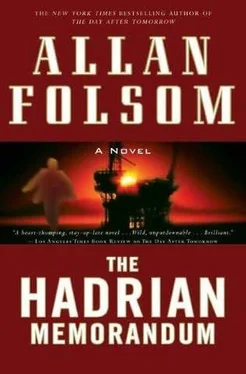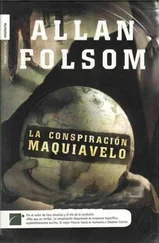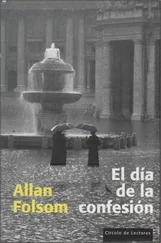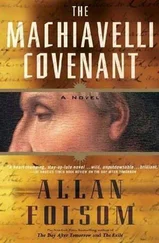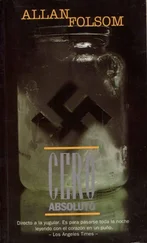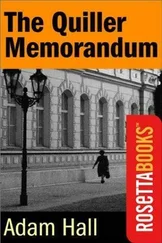White grinned. “We are not in the business of geting caught, Mr. Marten.”
Just then the barman brought the drinks, and White handed them around.
Anne Tidrow picked up her glass and looked at Marten. “Perhaps you could tell us something of your experiences during the fighting. What went on, what you saw.”
“I wasn’t exactly in the middle of it.” Marten picked up his glass and took a solid pull at his drink. “What I remember was seeing two little native boys come running along a very muddy road in the pouring rain yelling for Father Willy Dorhn, the priest you were referring to. A couple of minutes later I heard gunfire from the village. The next thing, a couple of army trucks full of soldiers showed up. The first one stopped beside Father Dorhn and the boys. Soldiers jumped out. One of them hit the father with a rifle butt hard and knocked him down. Maybe you don’t know, but he was an old man. Another soldier did the same to the boys. One right after the other. I found out later all three of them died. The soldiers in the second truck came after me.” Marten paused; then his eyes came up to hers and held there. “What else do you want to know?”
“Did you get to the village beforehand?” Now it was Conor White asking the questions. “By that I mean were you there earlier, before the rebels came?”
“I never said the rebels came. I’d met Father Willy several hours earlier, and he took me into the rain forest to show me some native plants. I’m a landscape architect. That’s why I came to Bioko. To study the local flora for some clients back home. It was afterward, when we came down out of the jungle and were nearing the village, that all the trouble started. The father told me to run, and I did.”
“Were you in his church? His living quarters?”
“Why?”
“Mr. White is just trying to get some sense of what was going on before the rebels attacked.” Anne Tidrow took a sip of her drink and set the glass on the bar.
“You people keep telling me the rebels attacked. I never saw a rebel. Only soldiers.”
“But you were in his church and his living quarters,” Conor White pressed him.
“I met him in the village square, if that’s what you want to call it.” Marten deliberately locked eyes with White. “First it was the rebels. Now you’ve asked me twice if I was in the priest’s church or his living quarters. Just what is it you’re trying to find out?”
“If he was encouraging the rebellion. If you saw anything that might indicate that.”
“No. I didn’t.”
“It might interest you to know the savagery has escalated greatly in the last weeks. The army is literally slaughtering suspected insurgents as well as their families, the elderly and women and children included, and afterward burning their villages to the ground. In response the people are butchering soldiers and bystanders alike. It is becoming very dangerous to have our people here, both mine and the employees of Striker Oil.”
“Why don’t you get them out?”
“Because if we did we might well not get back in again for a very long time. Striker has a major investment here. So, at the moment, that option is not realistic.”
“Well, that’s your business, not mine.” Marten’s eyes left White and went to Anne Tidrow. “If you don’t mind, I’ve had a long couple of days. I want to join my friends at the table so that we’re all together when the soldiers come to escort us to the airport. Maybe you haven’t heard, but the army kicked us out of the country. We’re leaving on the ten-o’clock flight to Paris, assuming it gets off. One way or another we’ve still got a lot of night ahead of us.”
Suddenly the thunderous beat of a bass drum rocked the room. Instantly everything went silent. Even the storm seemed to quiet down. Anne looked to Conor White.
“Here we go again.”
In the next second an honor guard made up of a dozen black African soldiers in gold-and-blue dress uniforms and wearing white gloves appeared in the main doorway. Each carried a gold-plated AK-47.
Again came the thundering boom of the drum. Immediately eight more soldiers in the same uniforms marched smartly into the room and stopped in unison. One had a large bass drum harnessed in front of him. The others carried gold-plated trumpets. In unison they raised them to their lips and blasted out what sounded like some kind of fanfare.
“President Tiombe is coming,” Conor White said quietly. “He does this at whim, whenever it is his pleasure.”
Marten looked toward the doorway as the drummer and trumpet soldiers stepped to the side and a lone black African in an elegantly tailored full-dress military uniform entered. He was tall and wide at the same time and visibly soft, giving more the appearance of a buffoon than of the warrior-king of a merciless army. For an instant he surveyed the room, then without further hesitation started forward, accompanied left and right by the gold-plated-AK-47-carrying guards.
“What’s going on?” Marten asked.
“He’s making himself known to the foreign guests,” White said. “He wants to be recognized as Equatorial Guinea’s great host and benefactor.”
Marten watched as president/dictator Francisco Ngozi Tiombe worked the room like a politician, choosing this person and that at random, shaking hands, chatting briefly, and sometimes touching them warmly on the shoulder as he moved on to the next. Thirty seconds and a dozen handshakes later he stopped in front of them.
“Good evening, Ms. Tidrow, Mr. White,” he said in a low rumbling voice and in impeccable English. “I trust you are enjoying your stay.”
“Yes, of course, Excellency, thank you,” Conor White said, bowing slightly at the waist as he did. President Tiombe smiled, and then his eyes shifted to Marten.
“This is Mr. Marten, Excellency,” White offered. “Unfortunately circumstances are such that he has to leave your most hospitable country this evening.”
“I’m sorry to hear that, Mr. Marten.” Tiombe smiled. “Please say good things about my nation and my people when you reach your home. I look forward to welcoming you personally the next time you visit Malabo.”
“That is most generous, Mr. President.” Marten nodded but did not bow. “Thank you.”
Tiombe fixed Marten with a stare that could only be called chilling and then abruptly moved on.
“Now you can say you’ve met the president of Equatorial Guinea,” Conor White said with a smile.
“All the more reason to be leaving.” Marten finished his drink and set the glass on the bar. “I hope I’ve been some help to you.”
“It was kind of you to take the time to talk with us,” Anne Tidrow smiled.
“The pleasure was mine,” Marten said and, with a nod to Conor White, walked off.
White waited until Marten was out of earshot, then turned to Anne. “What do you think?”
“He knows more than he’s telling.”
“I agree.” White picked up his drink. “The question is what to do about it.”
7:52 P.M.
HEADQUARTERS, AG STRIKER OIL & ENERGY COMPANY,
HOUSTON, TEXAS. STILL THURSDAY, JUNE 3. NOON.
A deeply troubled forty-seven-year-old Josiah “Sy” Wirth, chairman of AG Striker, stared out at the glare of the city from the window of his sixty-fourth-floor office. Tall and lanky, his face creased by time, the Texas sun, and the lifelong strain of intense ambition, he wore faded jeans, a weathered, pearl-studded western shirt, and ostrich-skin boots. He looked more like a cowboy just in from the range than like the top executive of a booming oil company.
“By all accounts, Mr. Loyal Truex landed his Gulfstream an hour ago,” he said coldly. “Theoretically, he’s on his way here now.” Abruptly he turned from the window to look at Striker’s general counsel, Arnold Moss, a sixty-two-year-old widower and long-ago-transplanted New Yorker, sitting in a chair across from him. “It doesn’t take that long to get from Ellington Field to here. So where the hell is he? Lost? Or did he stop to get laid along the way?” Wirth sat down at his desk and picked up a large unlit cigar from a red, white, and blue ashtray shaped like the state of Texas.
Читать дальше
